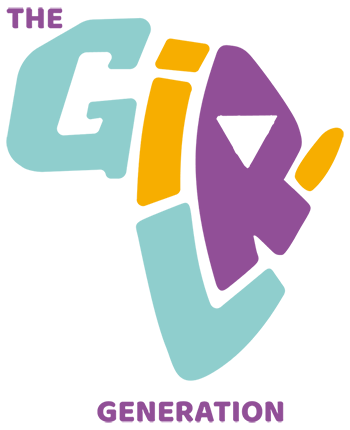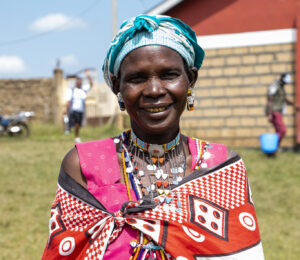Investing in Survivors’ Voices to End FGM/C
On Zero Tolerance Day for Female Genital Mutilation/Cutting (FGM/C), we joined forces with our consortium partners and beyond, placing survivor voices at the forefront of our combined efforts. This year’s theme, “Investing in survivors’ voices to end FGM/C,” emphasized the crucial need to support survivors and those at risk, while also strengthening laws and institutions to eliminate FGM/C.
In communities, where tradition often collides with the rights and well-being of young girls, The Girl Generation has emerged as a beacon of hope and catalyst for change. Through tireless advocacy and grassroots engagement, we work closely with local leaders, survivors of FGM/C, activists, and community members challenging deeply ingrained norms and beliefs that perpetuate FGM/C.
As we celebrate the progress achieved in the countries and the world at large, we also reaffirm our commitment to ending FGM/C, as we seek a world where girls and women can exercise their power and rights, and be free from all forms of violence.
UK engagement with FCDO
In collaboration with the Foreign, Commonwealth and Development Office (FCDO), we hosted a powerful panel discussion titled “Survivor Stories: Accelerating the movement to end FGM”. The discussion emphasized the crucial role of survivor leadership in combating FGM/C, highlighting that it’s not a cultural practice but a human rights violation.Moderated by Diana Dalton, Head of Gender and Equalities at FCDO, the event featured insights from activists and survivors Sarafina Loriakwe, Amina Galgalo Omar, and Dr. Leyla Hussein, our Global Advocacy Director.
The panel reiterated that sustainable progress in ending FGM/C requires centering survivors in program design, implementation, and evaluation. Diana Dalton affirmed FCDO’s commitment to supporting the Africa-Led Movement to end FGM, recognizing FGM as a severe manifestation of gender-based violence and inequality.
The Survivor Leadership Initiative (SLI) garnered attention for its dedication to empowering survivors to emerge as leaders within the movement. Through offering comprehensive emotional support, financial assistance, and specialized training, SLI is actively working to enhance prevention efforts and challenge the stigma surrounding FGM/C and mental health.
KENYA
At the national level,we hosted a film documentary screening titled “Beyond Physical Scars – A Call to Invest in Psychosocial Support for FGM/C Survivors.” This initiative aimed to highlight the critical role of psychosocial support in the well-being and recovery of survivors of violence, particularly those affected by Female Genital Mutilation/Cutting (FGM/C).
The short documentary delved deep into the untold stories of FGM/C survivors, shedding light on their resilience, strength, and the challenging journey towards healing. By bringing these narratives to the forefront, the event emphasized the importance of addressing the psychological and emotional needs of survivors alongside physical care, recognizing the holistic nature of their recovery process.
Watch- Beyond Physical Scars
Key insights shared during the fireside chat on #HerVoiceMatters include:
“FGM has no medical justification and is a violation of human rights. Let’s unite to advocate for change, allocate resources, and eradicate this harmful practice.” – Deputy High Commissioner
“In the fight against FGM/C, survivors must lead the way. With our lived experiences and contextual knowledge, we hold the key to effecting change in our communities. I understand what is involved and the buttons to push when addressing this issue. While I cherish my culture, I recognize that FGM is a violation of girls’ rights.” – Sally, survivor, and champion.
“It’s always an emotional topic for me, especially when discussing FGM/C within the context of individuals living with disabilities. Despite facing polio at a young age, I underwent the cut at four years old. Drawing from my own journey, I am committed to ensuring that girls with disabilities are spared from this harmful practice.” – Okon, survivor and champion.
“To end FGM, we require a movement of women choosing not to subject their daughters to this violation.” – Bernadette Loloju, CEO of ANTI-FGM Board Kenya.
In Narok County, Amref Health Africa, a consortium partner of The Girl Generation – Support to Africa Led Movement Programme (TGG-ALM), together with the Narok County government, Gender Department, and other stakeholders commemorated the International Day of Zero Tolerance for Female Genital Mutilation in Suswa area, Narok East Sub County.
Narok County Commissioner, Reuben Lotiatia, made a call to action for all chiefs and village elders to provide critical information on perpetrators of FGM/C within their areas of jurisdiction. The commissioner noted that at least 15% of the FGM/C practitioners within Narok county are medics in the local health centers and private hospitals working in cohort with traditional birth attendants and cutters. He reiterated that FGM/C remains a crime and those caught engaging performing the act will be punished accordingly.
He emphasized that FGM/C has resulted in girls dropping out from schools and unable to achieve their dreams. As a result, strict penalties will be put in place to crack down on the practitioners of FGM/C.
The event underscored the pivotal role of survivors in putting an end to this violence against women and girls. A powerful assembly of their voices was witnessed in advocating for change and raising awareness about its effects.
Women’s March for Awareness
In Isiolo County, the air was charged with determination as community members, activists, and local leaders came together for Zero Tolerance Day against Female Genital Mutilation (FGM/C). The day wasn’t just marked with speeches; but the streets of Isiolo echoed with the sounds of marching feet as women led the charge in raising awareness about the significance of Zero Tolerance Day and the urgent need to address FGM/C. Their voices, united in purpose, carried a powerful message: FGM/C must end!
Recognition of Gender Champions
A key highlight during the event was the recognition of gender champions in the county for their remarkable efforts in combating FGM/C at the grassroots level. Certificates were awarded to individuals and organizations that demonstrated exceptional dedication and impact in raising awareness, providing support, and advocating for the rights of women and girls affected by FGM/C. This recognition served to motivate and inspire further action in the fight against FGM/C.
Formation of FGM/C Survivors Network
But the day held even more promise. Out of the discussions emerged a call for action—a call for the establishment of an FGM/C Survivors Network in Isiolo County. Led by the Women Rising Initiative Community-Based Organization (CBO), survivors from across the county came together, sharing their stories, supporting one another, and amplifying their voices in advocating for change. In this gathering, resilience was born, and a network of survivors emerged as a force to be reckoned with.
In a groundbreaking initiative, ActionAid Kenya launched a transformative Survivors Network in Garissa, following a comprehensive 2-day capacity building training. This network, established in collaboration with the Garissa County gender department and TGG ALM grantees, serves as a powerful platform for survivors to share their stories and actively contribute to the global movement to eradicate Female Genital Mutilation (FGM/C).
The objectives of this collective effort are:
- Providing psychological support and empowerment for FGM/C survivors.
- Educating communities on the harmful effects of FGM/C.
- Advocating for policy changes to safeguard the rights of girls and women.
During the county celebrations, the Governor, and the County Executive Committee Member (CEC) for Gender reaffirmed their commitment to eradicating the practice of FGM/C. The CEC also pledged support for finalizing the county’s anti-FGM policy, currently in draft form. Among the speakers at the event were Survivor Network co-chairperson Anisa Abdirahman and Fathi Yussuf, a member of the Young Women Breaking Barriers and representative of the TGG’s Girl’s Council. They passionately advocated for the protection and well-being of girls and women, amplifying the voices of survivors, and emphasizing the importance of collective action in ending FGM/C.
SOMALILAND
ActionAid Somaliland held a media panel discussion, which focused on addressing the need for Anti-FGM Policy approval in cooperation with the Ministry of Social Affairs and Family. Participants included representatives from the Ministry of Social Affairs, the Ministry of Health, Nafis Network which advocates against FGM/c, as well as women’s rights activists. The Programme was aired in a prominent local TV station and posted on social media advocating for the approval of Zero Tolerance Policy on FGM/C in Somaliland.



